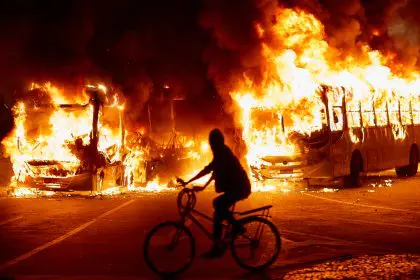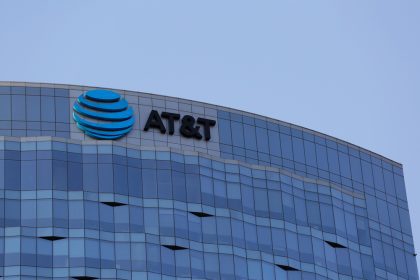
The week that changed history
In a week that has reshaped the global landscape, unprecedented events have captured international attention and sparked worldwide discussions about the future of democracy, economic stability, and personal security. These developments have not only dominated headlines but have also fundamentally altered the course of history in several regions, making it crucial for citizens worldwide to stay informed and engaged. The events of this week stand as a testament to the unpredictable nature of our interconnected world, highlighting the critical need for awareness in shaping the future.
Shifting sands in the Middle East
A major shift in the Middle East has sent shockwaves through the international community. The removal of Syria’s longstanding leadership marks a pivotal moment in Middle Eastern politics, altering the region’s balance of power and inviting a series of political and social consequences. For years, Syria has been embroiled in conflict, and its leadership has been central to its political identity. Now, with this leadership change, questions arise about the future stability of the country and the broader Middle East. This transition has sparked debate on how it will affect democratic movements and what role international powers will play in the region’s reconstruction.
The implications of this shift extend beyond Syria’s borders, touching nations in the Middle East and across the globe. International diplomacy is being tested as governments reevaluate their alliances and engage in discussions about the region’s future. This transformative event is not just a change of power—it represents a redefinition of political norms and international relations in a region that has long been a flashpoint for conflict. As the dust settles, the future of Syria, and the Middle East at large, remains uncertain, with many eyes turned to the evolving situation.
Economic tremors in daily life
On a more personal level, global economic shifts are affecting millions of consumers. One of the most notable disruptions has been the recent surge in coffee prices, which has sent ripples through the global market. The price increase is not just an inconvenience to coffee drinkers, but a reflection of deeper issues within the global supply chain. Droughts, agricultural instability, and political tensions in key coffee-producing countries have all contributed to the rising cost of this daily staple.
The price of coffee is a microcosm of broader economic pressures affecting consumers worldwide. From inflation to disrupted supply chains, many industries are grappling with similar challenges. The coffee price hike serves as a reminder that even the most mundane commodities are susceptible to global forces, and it underscores the interconnectedness of the world economy. As consumers brace for higher prices, questions about the long-term sustainability of agricultural systems and the resilience of global supply chains become even more pressing.
This economic shift offers a glimpse into the future of consumer goods. As prices rise and economic instability lingers, people are being forced to rethink their spending habits, and industries must adapt to these changes. The challenge lies in navigating these turbulent waters while maintaining economic stability and meeting the demands of a global market. The rising cost of coffee is more than just an inconvenience—it’s a signal of larger systemic issues that require collective solutions.
Security concerns in professional sports
Another headline-grabbing story this week revolves around security breaches targeting prominent football figures, raising serious concerns about the safety of public personalities. These incidents, which include high-profile break-ins and physical threats, highlight the vulnerabilities that athletes and celebrities face in today’s world. With the rise of social media and public exposure, the line between celebrity and public figure has blurred, leading to an increased risk to personal safety.
The pattern of targeted attacks on athletes has prompted a reevaluation of security protocols within the sports industry. These breaches have brought to light the need for heightened protection and more advanced security measures for public figures, who are constantly in the spotlight. As incidents like these become more common, questions about the adequacy of current security systems and the ethics of public exposure have emerged.
This rising tide of insecurity in sports forces a broader conversation about privacy, safety, and the pressures of fame. As the industry evolves, so too must its approach to safeguarding athletes and their families. Sports organizations, teams, and event planners must take a hard look at their security measures to protect the individuals they represent.
The power of informed citizenship
In the midst of these rapidly evolving global events, one thing becomes clear: staying informed has never been more important. In today’s fast-paced news cycle, it’s no longer enough to simply skim headlines. To make informed decisions and participate meaningfully in civic discourse, citizens must engage actively with the news. This includes reading beyond the surface, seeking diverse perspectives, and understanding the broader context of events.
Developing an informed perspective on complex global issues is crucial for shaping the future of democracy and society. When individuals are well-informed, they can participate in meaningful discussions, advocate for necessary changes, and hold those in power accountable. Informed citizens are the backbone of a functioning democracy, and their engagement helps shape policies that affect their daily lives.
In addition to political engagement, staying informed also allows people to better navigate their personal and professional lives. The world is interconnected, and understanding global events can provide valuable insights into local issues, job markets, and personal opportunities. By keeping abreast of current events, citizens can make educated decisions that benefit both themselves and their communities.
Building community through knowledge
Engagement with global events extends beyond individual actions—it also fosters community. When people come together to discuss important issues, they create spaces for dialogue that bridge divides and promote understanding. Whether through family discussions, community groups, or online forums, knowledge sharing enables a deeper connection between individuals and strengthens the fabric of society.
Understanding global developments helps people gain perspective on the challenges facing the world today. It fosters empathy, encourages problem-solving, and unites people from different backgrounds. In a time of global challenges, coming together as a community to share knowledge and perspectives is more important than ever.
As the world continues to face unprecedented events, staying informed and engaged is not just a responsibility—it is an opportunity. The events of this week have demonstrated the power of knowledge and the importance of being an active participant in shaping the future. Through informed citizenship and community engagement, we can collectively work toward a more stable, secure, and equitable world.














